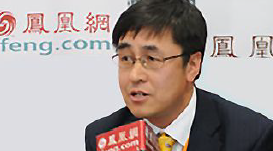時間: 2017-01-06 09:10
來源:
作者: 薛濤
導語:政府和社會資本合作(PPPs)已經吸引了有限的私有利益,并引發了跨部門之間的圈地戰爭。李克強在2016年的國務院常務會議中反復強調要推進PPP項目。前財政部長樓繼偉也致力于控制監管,并嘗試推進“強制”PPP項目。

Public Private Partnerships (PPPs) draw limited private interest and spark interagency turf war
state pushing PPPs
PPP was repeatedly promoted by Li Keqiang 李克強 in State Council executive meetings throughout 2016. Lou Jiwei 樓繼偉 former finance minister fought to control supervision and pushed for exploring mandatory PPPs. They are slated to
● invite private investment: it encourages private firms to participate in government-initiated projects, providing an alternative investment option with stable returns. Since data was available in May 2012, private investment saw its first y-o-y decline in June 2016. Recovering in August, it remains low
● finance local government: the 2014 Budget Law made irresponsible borrowing more difficult. To fill gaps, local governments increasingly turn to private capital, especially as they struggle to meet annual fiscal targets, and their debt swells
● drive new growth: the central push to limit asset bubbles makes localities more reliant on other growth channels, including infrastructure investment
● increase efficiency: private sector buy-in brings in expertise and more market-savvy management
private sector unimpressed
Of the 10,471 registered PPP projects with total value of C¥12.46 tn, only 11 percenthave been implemented by end September 2016. Faring better weredemonstration PPP projects under Ministry of Finance (MoF) supervision, with 58.2percent implemented. Private investors complain
● SOEs, allowed to bid for PPPs in China, dominate profitable projects that generate steady revenue streams, such as building highways; State Council has sent inspection teams to provinces, urging fair treatment of private investors, but this has only pushed localities to favour SOEs more subtly
● local governments sometimes exploit private firms, changing the terms after signing contracts; MoF proposed to deduct local government transfer payments if they fail to pay private contractors. This controversial clause was omitted from the final management measures
● returns are unsatisfactory: value for money (VfM), fiscal affordability and PPP suitability tests are intended to ensure returns; for unprofitable projects that offer public services, like aged care, increased subsidies are necessary to offer returns, but this is difficult given fiscal shortfalls
● there is no comprehensive PPP Law; this leaves space for ministries to squabble over controlling projects, creating uncertainty for investors
agency turf war
Standards and budgeting for PPP projects are in theory controlled by MoF, whileNDRC directs project selection and price setting. In practice, both agencies havetried to cover both functions, separately issuing project lists and guidelines forfund use. To end interagency competition, on 7 July 2016, Li Keqiang announcedthat public service PPPs will be under MoF’s jurisdiction, and infrastructure PPPsunder NDRC. The State Council Legislative Affairs Office will lead drafting the PPPLaw.
However, the boundaries between public service and basic infrastructure PPPs arenot well defined, argues Wang Shouqing 王守清 Tsinghua University, as manybasic infrastructure projects, like building hospitals and schools, provide publicservices. When MoF issued ‘Notice for promoting PPP in public serviceindustries’on 11 October, it included the following sectors as public service projects under MoF’s jurisdiction
● energy
● transport
● water resources
● environmental protection
● agriculture
● forestry
● municipal construction
This is at odds with NDRC’s assertion that these sectors are basic infrastructure on both 18 August and 27 October.
The two ministries use different standards to evaluate PPP projects, complicating investors’ decisions. MoF uses value for money analysis (VfM), emphasising investment returns and cost efficiency for the public. NDRC did not include this standard in its ‘Guiding principles for implementing PPP projects in traditional infrastructure industries’; it may instead use feasibility studies to assess commercial viability.
legal fix needed
The PPP Law, currently being drafted, should clarify MoF and NDRC’s jurisdictions and set up contract safeguards to protect private investors. Other suggested and ongoing adjustments include
● increased transparency: the government is pushing for better information disclosure, suggests Wang Shouqing 王守清 Tsinghua University, such as publicising contract details and financial transactions
● more liquidity: Shanghai United Assets and Equity Exchange (SUAEE) is preparing to launch a PPP trading platform; as PPP projects often last more than 20 years, a vibrant secondary market will encourage more private participation
● better funding: more stable and long-term investors, like insurance funds, may enter PPPs
● perks from government: experts have suggested preferential tax policies to improve interest in PPPs
roundtable

Jin Yongxiang 金永祥 | Dayue Consulting CEO and founder
Jin is a PPP pioneer, advising private investors as early as the 1990s. Already a consultant for MoF’s PPP database, he recently became one for NDRC’s too. NDRC and MoF PPP guidelines are at odds with each other, argues Jin. NDRC policy includes neither VfM nor fiscal affordability assessment; MoF uses these to select private investors. NDRC policy stipulates private partners can bypass rebidding for facility procurement only if they were selected through bidding originally; MoF policy allows firms to bypass rebidding on other grounds. Finally, NDRC allows state organs and their entrusted organisations to carry out PPP, whereas MoF permits only government, designated functional departments, and designated service agencies to do so. As both ministries built their own PPP databases, says Jin, the greatest concern is that NDRC will dispute the legitimacy of MoF’s projects, and MoF will refuse to fund NDRC’s projects.
編輯: 李姝樂

目前在中國科學院生態環境研究中心攻讀博士學位,此前分別在武漢大學和北京大學光華管理學院獲得理學學士和工商管理碩士學位。
現任E20環境平臺執行合伙人和E20研究院執行院長,湖南大學兼職教授,華北水利水電大學管理與經濟學院客座教授,中科院生態環境研究中心碩士生校外導師,天津大學特聘講師,并兼任北京大學環境學院E20聯合研究院副院長,國家發改委和財政部PPP雙庫的定向邀請專家,世界銀行和亞洲開發銀行注冊專家(基礎設施與PPP方向)、國家綠色發展基金股份有限公司專家咨詢委員會專家庫專家、巴塞爾公約亞太區域中心化學品和廢物環境管理智庫專家、中國環保產業研究院特聘專家、中國環保產業協會環保產業政策與集聚區專業委員會委員。住建部指導《城鄉建設》雜志編委、《環境衛生工程》雜志編委、財政部指導《政府采購與PPP評論》雜志編委,并擔任上海城投等上市公司獨立董事。
在PPP專業領域,薛濤現任清華PPP研究中心投融資專業委員會專家委員、全國工商聯環境商會PPP專委會秘書長、中國PPP咨詢機構論壇第一屆理事會副秘書長、生態環境部環境規劃院PPP中心專家委員會委員、國家發改委國合中心PPP專家庫成員、中國青年創業導師、中央財經大學政信研究院智庫成員、中國城投網特聘專家等。
20世紀90年代初期,薛濤在中國通用技術集團負責世界銀行在中國的市政環境基礎設施項目管理,其后在該領域積累了十二年的環境領域PPP咨詢及五年市場戰略咨詢經驗,曾為美國通用電氣等多家國內外上市公司提供咨詢服務,對環境領域的投融資、產業發展和市場競合格局有著深刻理解;2014年初加入E20研究院并兼任清華大學環保產業研究中心副主任,著力于環境產業與政策研究、PPP以及企業市場戰略指導等方向。
